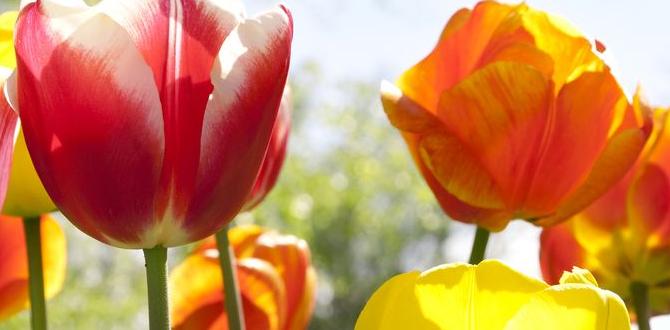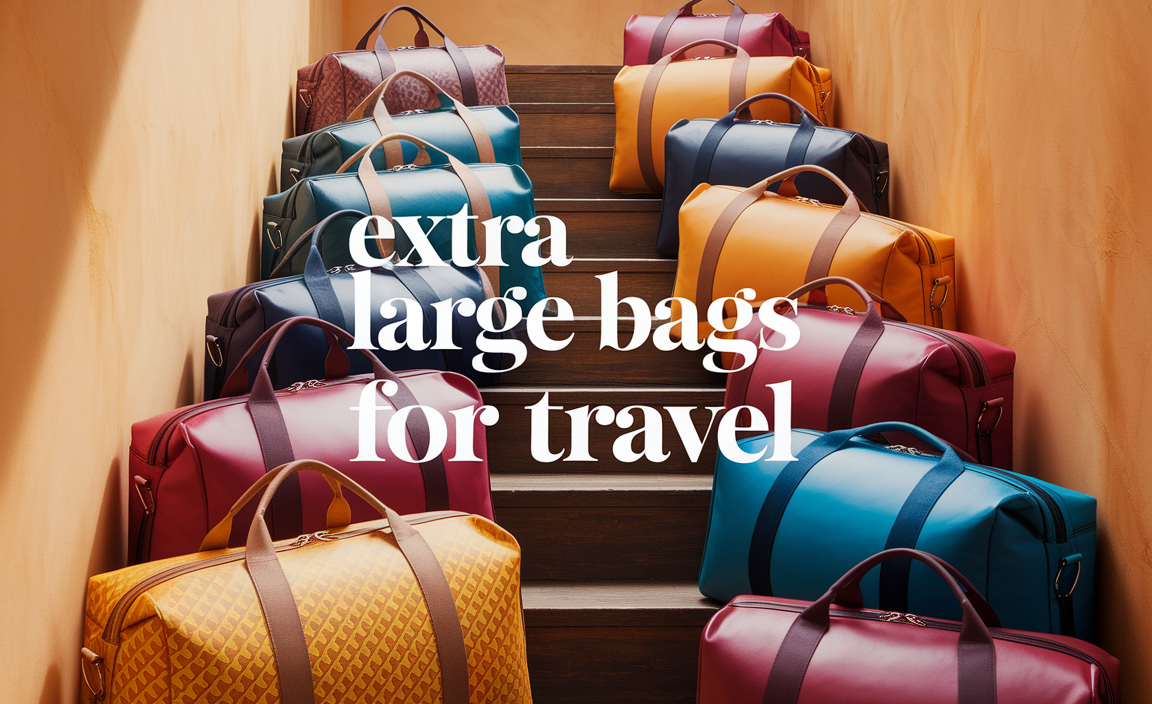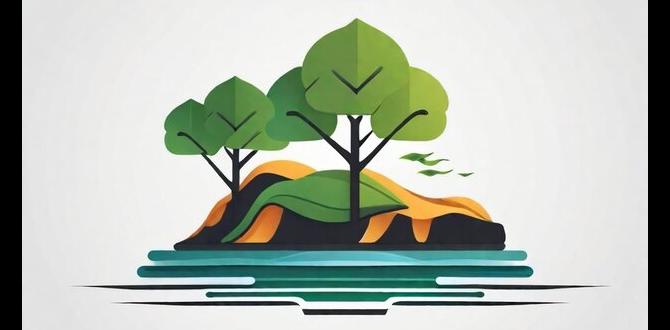Planning your trip to Algeria? This guide breaks down the essential costs, from accommodation and food to transport and activities, giving you a clear picture of an average daily budget. Discover how to explore this fascinating North African country without breaking the bank!
Considering a trip to Algeria? It’s a land of ancient history, stunning landscapes, and vibrant culture. But like any travel destination, understanding the costs involved is key to planning a smooth and enjoyable adventure. Many travelers find budgeting for a new country a bit overwhelming, worrying about unexpected expenses.
Don’t let that stop you! This guide is designed to be your go-to resource, breaking down the expenses in a clear, simple way. We’ll cover everything you need to know so you can confidently pack your bags and embark on your Algerian journey, knowing exactly what to expect financially.
Understanding Algeria’s Cost Landscape
Algeria, the largest country in Africa, offers incredible value for budget-conscious travelers. While not as tourist-trodden as some of its neighbors, it boasts a rich history, diverse geography, and warm hospitality. Understanding the general cost of living and travel is crucial for setting a realistic budget.
Generally, Algeria is considered an affordable destination, especially compared to Western Europe or North America. Your expenses will largely depend on your travel style – whether you prefer luxury hotels and fine dining or budget-friendly guesthouses and local eateries. This breakdown aims to provide a comprehensive overview, touching upon all essential travel categories.
Key Cost Categories for Your Algeria Trip
To help you visualize your spending, we’ve broken down the major cost areas. Keep in mind that these are estimates, and actual costs can fluctuate based on the season, your specific choices, and negotiation skills, especially in markets.
1. Accommodation
Accommodation costs in Algeria can vary significantly. You’ll find a range of options from simple guesthouses to more upscale hotels. For budget travelers, hostels and more basic hotels are the way to go. Mid-range options offer more comfort, while luxury hotels are available in major cities like Algiers and Oran.
Types of Accommodation and Estimated Costs (per night):
| Accommodation Type | Estimated Cost (USD) | Notes |
|---|---|---|
| Hostel/Budget Guesthouse | $15 – $30 | Basic amenities, shared facilities possible. Great for solo travelers on a tight budget. |
| Mid-Range Hotel | $40 – $80 | En-suite bathrooms, comfortable furnishings, often includes breakfast. |
| Higher-End Hotel | $90 – $150+ | More amenities, better service, prime locations. |
| Apartment Rental (Airbnb/Local) | $30 – $100+ | Varies greatly by size, location, and duration. Good for families or longer stays. |
When looking for accommodation, booking in advance, especially during peak seasons, is advisable. Consider areas slightly outside the absolute city center for potentially better rates. Don’t hesitate to ask locals for recommendations for authentic and affordable places to stay.
2. Food and Dining
Algerian cuisine is a delightful mix of Berber, Arab, and Mediterranean influences. Eating locally is incredibly budget-friendly and offers a true taste of the country. Street food, local bakeries, and small restaurants (known as ‘cafés’ or ‘restaurants’) are your best friends for saving money.
Food Cost Examples:
- Local Restaurants/Cafés: A hearty meal like couscous, tagine, or grilled meats can range from $5 to $15.
- Street Food: Think sandwiches (like ‘khobz erté’), grilled meats, or pastries, costing between $1 to $5.
- Coffee/Tea: A traditional mint tea or coffee at a local café usually costs $0.50 to $2.
- Bottled Water: A 1.5-liter bottle is typically $0.50 to $1.
- Groceries: If you opt for self-catering, fresh produce, bread, cheese, and local staples are very affordable. A week’s worth of basic groceries for one person could be around $30-$50.
Fine dining options are available in larger cities and can cost significantly more, often ranging from $30 to $60+ per person for a multi-course meal. For a realistic budget, plan to spend most of your food money on delicious, local fare.
3. Transportation
Getting around Algeria involves several options, from inter-city trains and buses to local taxis and internal flights. The cost-effectiveness depends on the distance and mode of travel.
Transportation Options and Costs:
- Inter-city Trains: Algeria has a decent railway network operated by SNTF, connecting major cities. A long-distance ticket can range from $10 to $40 depending on the route and class. It’s a comfortable and scenic way to travel.
- Inter-city Buses: Buses are often a cheaper alternative to trains for longer distances. Prices are comparable and sometimes even lower than trains, typically $5 to $25 for most popular routes. Companies like BBA and Louh are common.
- Taxis: Within cities, taxis are readily available. Agree on a price before your journey or ensure the meter is used if available. Short trips might cost $2-$5, while longer cross-city journeys could be $10-$15.
- Shared Taxis (Grands Taxis): For inter-city travel, these are a very common and budget-friendly option. You share the taxi with others traveling the same route. Prices are low, often $5-$15 for routes of a few hours.
- Internal Flights: For covering vast distances, especially to the Sahara or the deep south, Air Algérie offers domestic flights. These can range from $50 to $200+ for a one-way ticket, depending on the destination and booking time.
- Car Rental: While possible, renting a car can be expensive, with daily rates starting from $30-$50, plus fuel and insurance. Driving can also be challenging for foreigners due to local road conditions and driving habits.
For a budget traveler, relying on a combination of trains, buses, and shared taxis will offer the most economical way to see the country.
4. Activities and Sightseeing
Algeria is rich in historical sites, natural wonders, and cultural experiences. Many attractions are free or have very low entrance fees.
Examples of Activity Costs:
- Museums and Historical Sites: Entrance fees are generally low, often ranging from $1 to $5. This includes places like the Roman ruins of Timgad or Djemila, or museums in Algiers.
- Guided Tours: For specific historical sites or Sahara excursions, hiring a local guide can enhance your experience. Costs vary, but expect to pay $30-$100+ per day for a guide, depending on the region and services.
- Sahara Desert Experiences: A multi-day excursion into the Sahara, including camel treks, desert camps, and transport, can be a significant expense. Budget anywhere from $150 to $500+ for a worthwhile, organized trip, depending on duration and luxury level.
- National Parks: While some may have minimal entrance fees, many natural landscapes you encounter are free to explore.
- Casbah of Algiers: Exploring the winding alleys of the UNESCO World Heritage site is free, though some specific historical buildings within might have small entry fees.
Prioritize what interests you most. For example, if the Roman ruins are a highlight, budget accordingly. If you’re more interested in soaking up city life and local markets, your activity costs will be much lower.
5. Miscellaneous Expenses
Don’t forget to factor in smaller expenses that can add up:
- SIM Card and Data: A local SIM card is affordable, usually around $10-$20 for a pack with calls and data.
- Souvenirs: Variable, depending on your shopping habits.
- Tips: While not as ingrained a tipping culture as some countries, small tips for good service are appreciated at hotels, restaurants, and for guides.
- Personal Care Items: While generally affordable, it’s always wise to pack essentials. For those requiring special items like adult or child diapers, these are available but may be more expensive or harder to find than in your home country. Bringing a backup supply from home can save stress and money. Planning for comfort and necessity is key to stress-free travel.
- Travel Insurance: Essential for peace of mind. Costs vary based on coverage and duration.
Algeria Daily Budget Breakdown (Estimated)
Based on the above categories, here’s a sample daily budget for different travel styles. These figures are averages and can be adjusted.
Sample Daily Budget for One Person (USD)
| Category | Budget Traveler ($) | Mid-Range Traveler ($) | Comfortable Traveler ($) |
|---|---|---|---|
| Accommodation | 20 | 60 | 120 |
| Food & Drink | 15 | 30 | 50 |
| Local Transport | 5 | 10 | 20 |
| Activities & Sightseeing | 10 | 20 | 40 |
| Miscellaneous | 5 | 10 | 15 |
| Total Per Day | 55 | 130 | 245 |
This doesn’t include major travel expenses like international flights to Algeria or long-distance inter-city transport which are accounted for separately when booking.
Tips for Saving Money in Algeria
Want to stretch your Algerian dinar further? Here are some practical money-saving tips:
- Travel in the Shoulder Season: Prices for flights and accommodation can be lower outside of peak summer months.
- Eat Like a Local: Embrace street food and small, family-run eateries. Avoid tourist traps.
- Use Public and Shared Transport: Opt for trains, buses, and shared taxis over private ones for longer distances.
- Negotiate (Politely): Haggling is common in markets and with taxi drivers. Do so with a smile and be respectful.
- Master Basic Arabic Phrases: Knowing a few words can help in interactions and sometimes secure better prices.
- Stay Hydrated with Local Water: Buy large bottles of water from supermarkets instead of small ones at tourist sites.
- Prioritize Activities: Decide which experiences are must-dos and allocate your budget accordingly. Many natural and cultural wonders are free.
Currency and Payment in Algeria
The currency in Algeria is the Algerian Dinar (DZD). Credit cards are accepted in larger hotels, upscale restaurants, and some shops in major cities, but cash is king, especially in smaller towns and for everyday purchases. It’s advisable to carry a sufficient amount of cash.
You can exchange currency at banks or official exchange bureaus. ATMs are available in cities, but it’s wise to have some emergency cash on hand. For those who require absorbent products for personal care during travel, like adult diapers or child diapers, it’s generally recommended to purchase these in your home country before departure.
While you can find them in larger pharmacies in Algerian cities, selection may be limited, and prices can be higher than what you’re accustomed to. Bringing your own supply ensures you have the comfort and reliability you need, avoiding potential stress or inconvenience during your trip.
Conclusion
Algeria is a country that rewards curious travelers with its rich history, breathtaking landscapes, and genuine hospitality, all without demanding a hefty price tag. By understanding the cost breakdown for accommodation, food, transportation, and activities, you can confidently plan a trip that fits your budget.
Whether you’re a solo adventurer exploring ancient Roman ruins, a family discovering the vibrant souks, or simply seeking adventure in the vast Sahara, there are affordable ways to experience it all. Remember that flexibility, embracing local experiences, and smart planning are your best tools for a memorable and cost-effective Algerian journey. Pack your bags, keep this guide handy, and get ready to explore the wonders of this captivating North African gem!
Frequently Asked Questions
Q1: Is Algeria an expensive country to visit?
No, Algeria is generally considered an affordable travel destination, particularly for those who embrace local culture and budget-friendly options for food and accommodation.
Q2: What is the average daily cost for a budget traveler in Algeria?
A budget traveler can expect to spend roughly $55 per day, covering basic accommodation, local food, public transport, and modest sightseeing.
Q3: How much should I budget for food per day?
For local dining and street food, budgeting around $15-$30 per day is usually sufficient. More upscale dining will increase this cost significantly.
Q4: Are credit cards widely accepted in Algeria?
Credit cards are accepted in major hotels, larger shops, and some restaurants in big cities, but cash (Algerian Dinar) is essential for most transactions, especially in smaller towns and markets.
Q5: What’s the best way to travel between cities in Algeria on a budget?
Inter-city trains and buses operated by national companies like SNTF are economical. Shared taxis (‘grands taxis’) are also a very popular and cost-effective option for longer distances.
Q6: Is it easy to find Western brand toiletries or specialty items like adult diapers in Algeria?
While larger pharmacies in big cities may carry some, selection can be limited and prices higher. It’s highly recommended to bring any essential personal care items, such as adult or child diapers, from your home country to ensure availability and comfort.
Q7: When is the best time to visit Algeria to save money?
Visiting during the shoulder seasons (spring and autumn) can help save money on flights and accommodation, as well as offering more pleasant weather for exploration.





